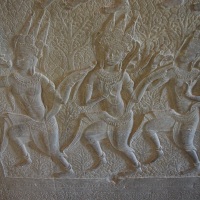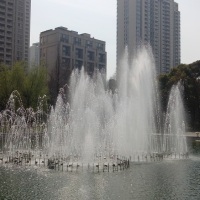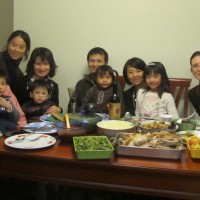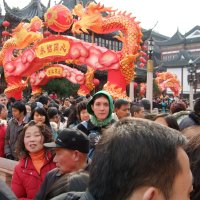At the beginning of May right after the Labor Day holiday (World Labor Day is different from Labor Day in the US – though that’s a topic for a different post), I went to Taiwan with my colleagues. As I noted in this post on Hualien Beach, I have a soft spot in my heart for traveling with them.
Taiwan was unlike anywhere I have been before. Most of my impressions prior to the visit had been from the TV show – “Fun Taiwan” and from my good friends Mike & Lily whom I met in Shanghai. Neither really prepared me for the visit.

A view of the famous Sun Moon Beach in Taiwan’s interior
It feels like China – but cleaner and more polite. It feels like Hong Kong – without the Cantonese accent. It feels like a mountain resort and hot spring, but it also feels like a traditional city with temples and culture. The food was tasty and affordable with a myriad of tastes that I have never had. Taiwan thoroughly bewitched me.
In addition, because I was traveling with a group of people from mainland China, the trip opened up different types of cultural and historical back-drop that I never even considered. For example – did you know that elementary school text books in mainland China have a special unit on the “province” of Taiwan and all of its natural beauty? Or that Taiwan has two calendars – one that started when the Kuomintang arrived? I didn’t.
My impressions of Taiwan then are a mix of different tastes and sights and sounds. Here are a few to wet your appetite.
1) The food, the food, the food – even at the rest stations on the highway there were so many choices for quick meals. Taiwanese sausages on sticks, bowls of noodles, dried fish, sweets, pork cutlets… The rest areas put all other rest areas to shame. Fresh papaya milk, pineapple cakes, seafood, hot pot, bubble tea – we joked that we were eating 5 meals a day. Don’t go to Taiwan and try to diet!

You can laugh at the English translations – but the food was top notch – I even tried one of the rice tubes

Photo from one of the street markets – all of the possible hot pot combinations displayed for your evening snack
2) Politeness – I have good Taiwanese friends who are exceedingly polite, but I never projected that onto an entire people. It appears that I should have. When waitresses put dishes on the table, they said excuse me – every time! I was looking for a certain bus stop – and four or five people offered assistance. There were free umbrellas at the hotel if you needed them and people kept their helmets stored on their motorbikes – without locking them together. I know that had I never lived in China these small acts of kindness would likely not make such a big impression – but I have, and they did. Here were people speaking Mandarin who had kept the civility which is so often missing in Shanghai.
3) Traditional characters – Hong Kong also uses traditional characters, but Hong Kong has a lot more English sprinkled through signs. I was impressed by how much I could understand – and how complicated characters that are so basic were before the writing reform. For example – the word for advertisement:
广告=廣告=guang gao (simplified, traditional, pinyin)
They are pronounced the same way and have the same meaning – but the second has lots of additional strokes. Reminds me of my mother telling me when she was small that it “just wasn’t fair” that her name had so many letters. I imagine Taiwanese kids must feel the same way when they see the simplified Chinese versions.
It felt like I was getting the inside track – we saw very, very few foreigners after we left the airport and since my colleagues had done their research I was treated to the best views, the best snacks and even serenaded by Taiwanese music during the trip.

Ready to explore!
What’s the best group trip that you’ve had? When tour groups work well they can smooth out all of the problems and potential issues and truly let you enjoy the destination instead of the trip.
Have you been to Taiwan? What are your impressions?
Tags: cultural differences, first thoughts, Fun Taiwan, group travel, mandarin, politeness, Taiwan




























